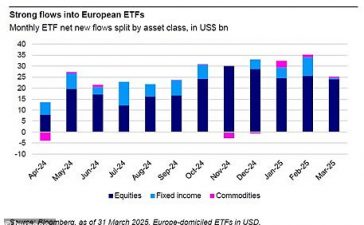There are many stressful things about holidaying abroad, but running the all-too-familiar gauntlet with car rental companies is definitely one of the worst.
Nearly 90 per cent of travellers worry that they will be taken advantage of by holiday car hire firms, according to one survey, and frankly, I’m not surprised.
Being pressed to take out an expensive insurance upgrade at the collection desk is par for the course. Yet turn this down, and if you return your car with so much as a scratch on it, hundreds of euros could instantly be charged to your credit card — even if you were not responsible for the scratch in question!
So how can consumers avoid this car crash of poor customer service — and why are these problems so persistent in the car rental market?
An undercover report this week from consumer campaign group Which? shone powerful headlights on widespread bad practice in the European car rental industry, and why holidaymakers would be wise to be on their guard even more than usual this year.
The Which? investigation caught a range of pressure sales tactics on camera, including what it considered to be misleading statements about insurance cover — in one case, a sales rep telling an undercover reporter they could be liable for €760 (£653) for just a scratch if they did not purchase additional insurance.
A more recent tactic — one that was applied to me on my last holiday abroad — is companies threatening to block a sizeable deposit on your credit card to cover potential damage if you refuse to buy their extra insurance. Which? has found examples where firms say they will pre-charge as much as €1,200 with some warning it could take 30 days for a deposit to be returned, even if your car is handed back with no issues.
If you have a fee-free credit card that you use for spending abroad — such as Halifax Clarity or Barclaycard Rewards — this could annoyingly chew up a big chunk of your credit limit, and might make it impossible to use that card to settle a hotel bill where large transaction charges would otherwise apply. So punters cave in and buy the insurance. But what are they actually purchasing?
The way the car hire insurance market works is set up to befuddle the consumer. In Europe, basic insurance — known as a collision damage waiver — is always included in the rental price. However, if you were to come a cropper, the excess payable on these policies is huge.
To protect themselves, consumers have two choices — buy a super collision damage waiver from the car hire company or take out what is known as an excess reimbursement policy from a third-party insurer before you travel. I personally pay around £40 for an annual policy of this type.
That way, if something were to happen, your card would be charged for the excess, but the excess reimbursement policy would swiftly refund this.
So why would anyone design a marketplace in this way? The answer is, so that car hire companies can advertise the cheapest possible prices.
“The low prices being advertised for car rental in peak season this year aren’t a sustainable amount for car rental companies, so they are under pressure to make up revenues in different ways,” explains Tom Dickinson from Zest Car Rental, the only Which?-recommended car rental broker.
In such a low-margin business, hooking customers in with a low headline rental price, then convincing them to take out a pricey high-margin insurance product is very much the name of the game.
Which? found typical “insurance upgrade” charges of £177 in Málaga this summer on a week’s car hire compared with just £23 if buying this cover directly from a third-party insurer (it has a handy guide to the best providers here).
What’s more, third-party cover typically offers better protection than the pricey policies the firms sell, covering incidents such as mis-fuelling, key loss, plus damage to windscreens and tyres which would otherwise incur extra charges.
The wily traveller will come armed with their own excess insurance policy, but Which? advises against telling staff on the car hire desk about it. Why?
Most agents operate on commission, and the consumer champion has found this can open you up to the hard sell as they can (very convincingly) pick holes in your policy that don’t really exist.
If you steadfastly refuse to take out extra cover, the other way firms can bump up their revenues is by charging a small fortune for damage.
“We have had lots of reports from people who feel like because they haven’t taken the additional insurance, when they return the car, the agent is going over it with a fine-tooth comb looking for the most minute amount of damage,” says Guy Hobbs, head of Which? travel research.
More experienced travellers will take dozens of photos and videos of their rental car to disprove any spurious future damage claims before they so much as put the key in the ignition.
This year, a colleague had nearly £1,000 taken from her credit card the day after arriving home from a family holiday in France. The hire car firm sent photos of a pre-existing scratch (thankfully, she had taken her own photos at the start of the rental so could disprove this) and a muddy mark on the back bumper. None of this was raised at the time she returned the car, and the email correspondence was unhelpfully in French, even though the booking took place on an English-language website of a multinational firm.
She complained, sending in her own pictures, and the fees were eventually refunded. However, she couldn’t help but wonder if showing the desk staff her excess insurance policy when she picked up the car had marked her down as an easy target.
“When customers book with more unscrupulous companies, there’s always a chance that damage that was there, but not documented properly, will be used against them,” says Dickinson, who advises checking damage recorded on the rental agreement matches what is on the car.
Sadly, plumping for a well-known rental firm is not a fail-safe way to avoid these tactics. “The general public probably don’t realise that multinational companies typically use licensees — a local company that pays a fee to advertise using their brand name,” he adds.
Zest has earned its stripes by thoroughly vetting the local offices of all the firms on its books, placing a great deal of emphasis on customer feedback. Tellingly, it will broker car hire arrangements with the big rental brands in some holiday destinations, but not in others. Furthermore, excess insurance is included in its prices, removing any incentive for staff on commission to give its customers the hard sell.
Yes, you will pay more for this service than the rock-bottom prices that might flash up on an online booking website. But avoiding the stress of worrying about car rental charges coming back to bite you is a perk I’m willing to pay for.
Claer Barrett is the FT’s consumer editor; claer.barrett@ft.com; X @Claerb; Instagram @Claerb











